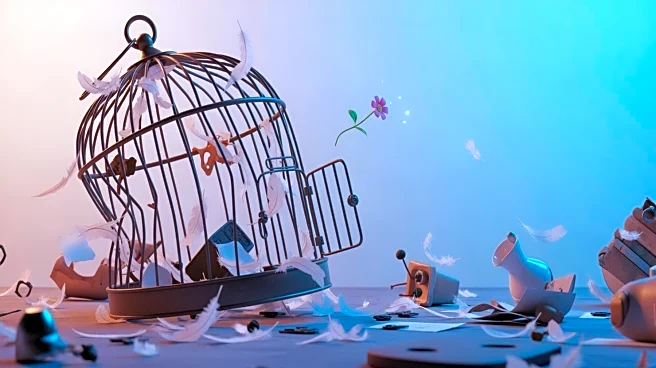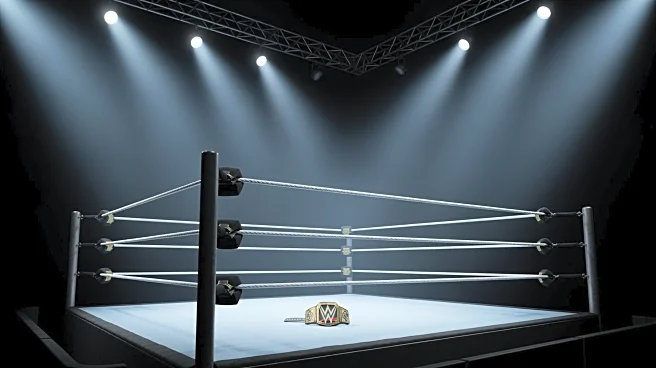What's Happening?
Phil Johnston has directed a new animated adaptation of Roald Dahl's classic children's book 'The Twits,' now available on Netflix. The film introduces Mr. and Mrs. Twit, notorious for their mean-spirited antics, who create a backyard amusement park called
Twitlandia to lure children. The story follows two orphans, Beesha and Bubsy, who find themselves entangled in the Twits' chaotic world after a flood of liquid hot dog meat disrupts their city. Johnston's adaptation blends whimsical elements with lowbrow humor, featuring magical monkeys and exploding butts, while addressing themes of hatred and empathy. The film diverges from the book's original ending, opting for a message of understanding rather than revenge.
Why It's Important?
Johnston's adaptation of 'The Twits' is significant as it reflects current societal issues, particularly the pervasive nature of hatred and the importance of empathy. By incorporating political commentary and themes of chosen family, the film resonates with audiences facing similar challenges in today's world. The adaptation serves as a vehicle for discussing how children can navigate a world filled with negativity and deceit, offering a narrative that encourages thoughtful engagement over reactionary responses. This approach not only entertains but also provides a platform for reflection on broader societal dynamics.
What's Next?
The release of 'The Twits' on Netflix is likely to spark discussions among viewers about the film's underlying themes and its departure from the original book's ending. As audiences engage with the film, there may be increased interest in adaptations that blend entertainment with social commentary. Johnston's work could inspire other filmmakers to explore similar narratives that address contemporary issues through creative storytelling. Additionally, the film's reception may influence future adaptations of Dahl's works, encouraging a balance between humor and meaningful discourse.
Beyond the Headlines
Johnston's adaptation of 'The Twits' highlights the ethical considerations of storytelling in children's media. By choosing to focus on empathy and understanding rather than revenge, the film challenges traditional narratives that often glorify vengeance. This shift reflects a broader cultural movement towards promoting positive values and constructive dialogue in media. The film's exploration of chosen family also underscores the importance of community and support systems, offering a counter-narrative to isolation and despair.
















